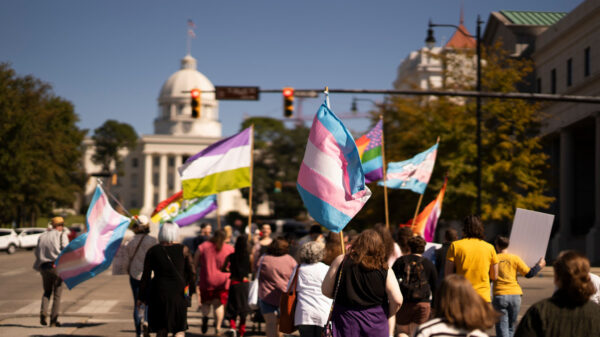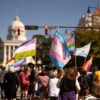NCAA President Mark A. Emmert expressed concern over nationwide legislative pushes in several state legislatures to ban transgender youth from participating in public school sports while reinforcing NCAA’s commitment to hosting championship games in locations “free of discrimination.”
“The NCAA is concerned with the numerous bills that have been filed across our country related to sport participation,” Emmert said in a letter sent to Human Rights Campaign President Alphonso David Thursday. “As we have previously stated in situations such as Idaho’s House Bill 500 and its resulting law, this legislation is harmful to transgender student-athletes and conflicts with the NCAA’s core values of inclusivity, respect and the equitable treatment of all individuals. The NCAA Board of Governors policy requires championship host sites to demonstrate how they will provide an environment that is safe, healthy, and free of discrimination. The board policy also requires that safeguards are in place to ensure the dignity of everyone involved in the event.”
“The NCAA continues to closely monitor and assess state bills and federal guidelines that impact student-athlete participation,” Emmert said.
In 2016, the NCAA Board of Governors instructed the association to relocate seven previously awarded championship events in North Carolina after the Public Facilities Privacy and Security Act, legislation that eliminated existing municipal non-discrimination protections for LGBTQ people and forced transgender students in public schools to use restrooms and other facilities inconsistent with their gender identity, was passed into law.
The NCAA has continuously held a firm position that if participating states do not meet the association’s “expectations of a discrimination-free environment,” the association will “not hesitate to take necessary action at any time.”
Recently, the Alabama House passed legislation to ban transgender athletes from playing in school athletics in K-12 public schools. Alabama is one of 20 states that have introduced similar bans on transgender athletes in public school sports this year.
Easter Sunday, the 2021 NCAA Division I Women’s Basketball National Championship will be played in Texas, a state where six proposed bills relating to the prevention of transgender athletes in school sports currently sit in the state Legislature, according to data by Freedom for All Americans. Texas has the second-largest population of transgender citizens in the entire country.
In a statement Friday, HRC President Alphonso David said these bills “seek to deny the very existence of transgender people,” and further preserve a stigma that fuels an epidemic of violence against the transgender community:
“To be clear, this stigma is directly affecting NCAA athletes; as highlighted in a recent article detailing the steps the NCAA had to take to protect the safety of one of its transgender athletes, including hiring bodyguards. It bears repeating: this is a moment of crisis. HRC stands ready to support the work of the NCAA to ensure that we continue to foster diversity, inclusion and equity.”
In October 2020, Birmingham’s Legacy Area was selected to host the NCAA’s 2023 Division I men’s tournament and the 2025 Division I women’s basketball southern regional. Emmert made no direct mention of House Bill 391, the proposed ban for transgender athletes in Alabama public school sports, in his letter to HRC, but the legislation is similar to the Idaho bill he expressed concerns over. It remains unclear how the proposed ban will affect the selection.




















































